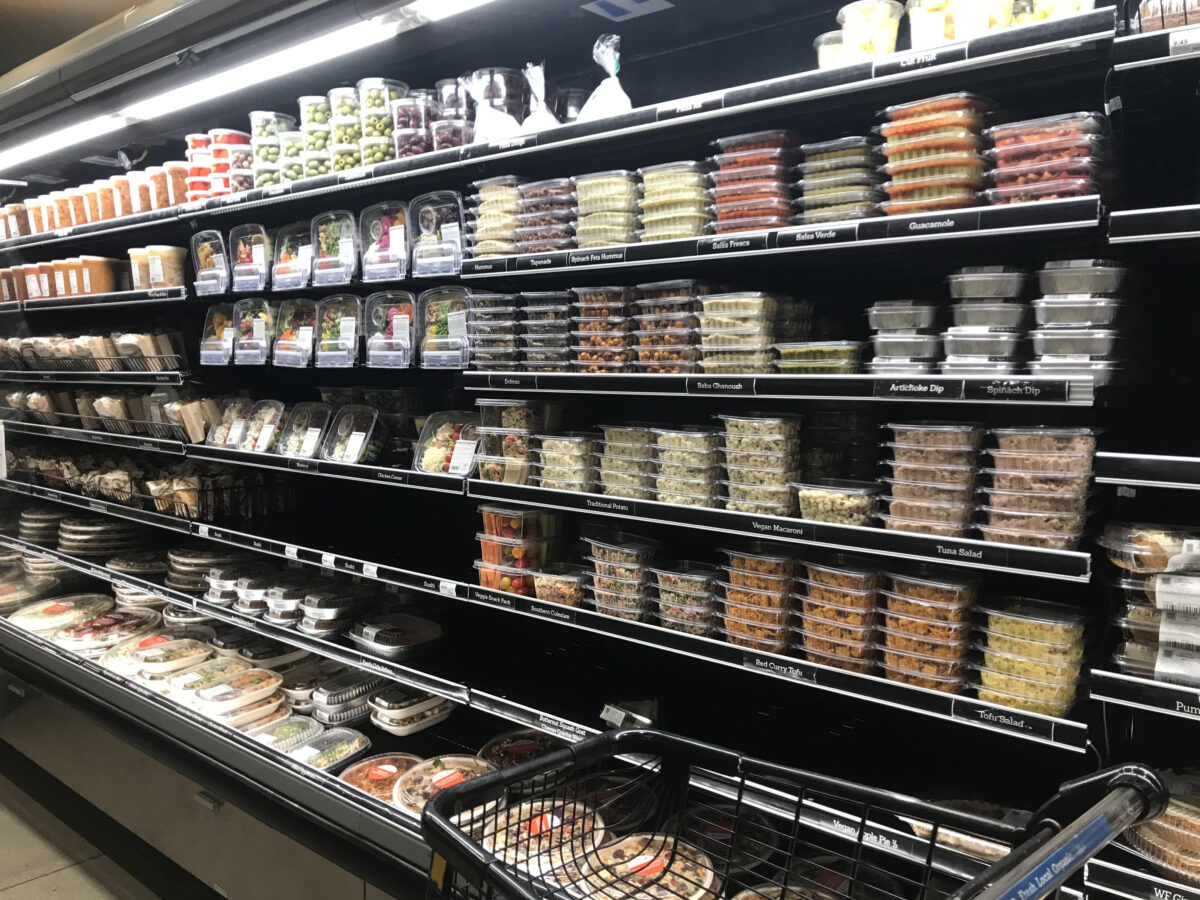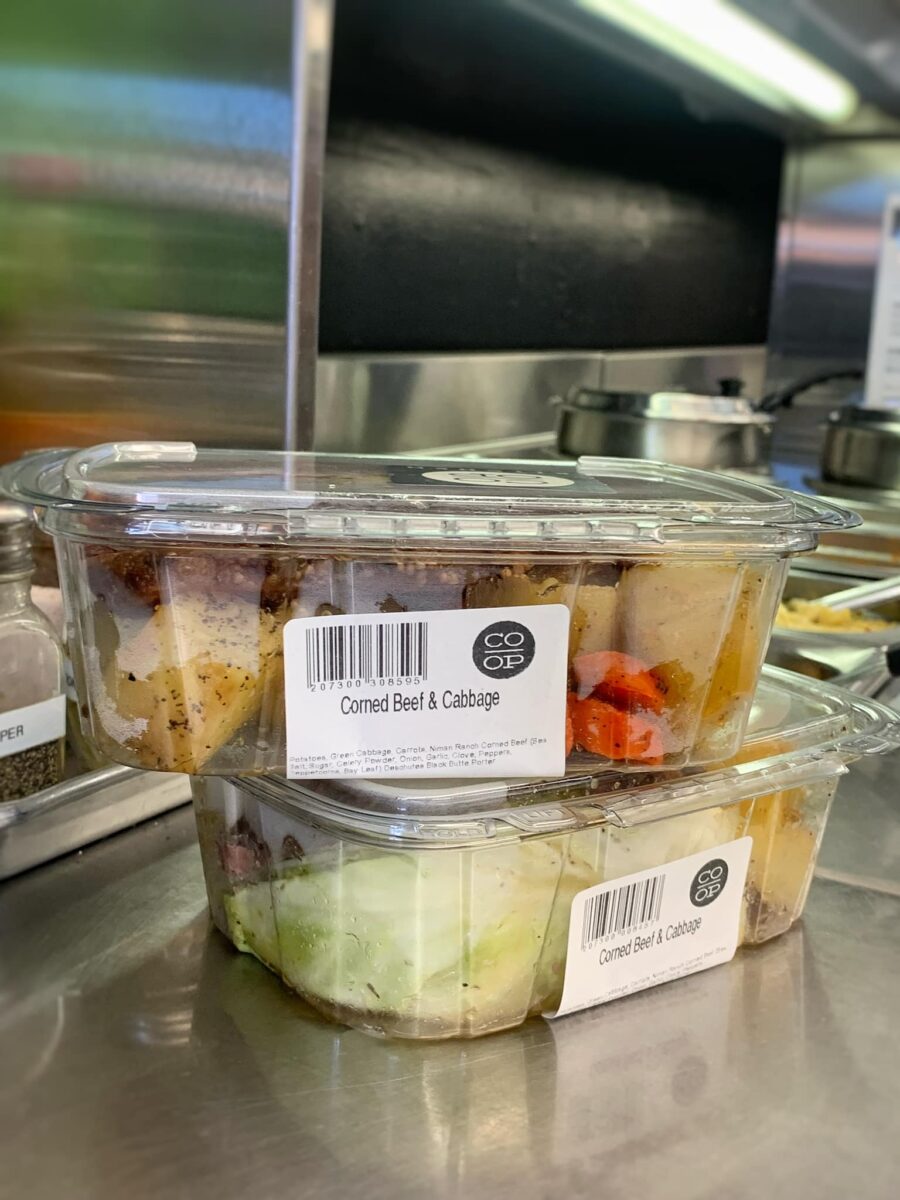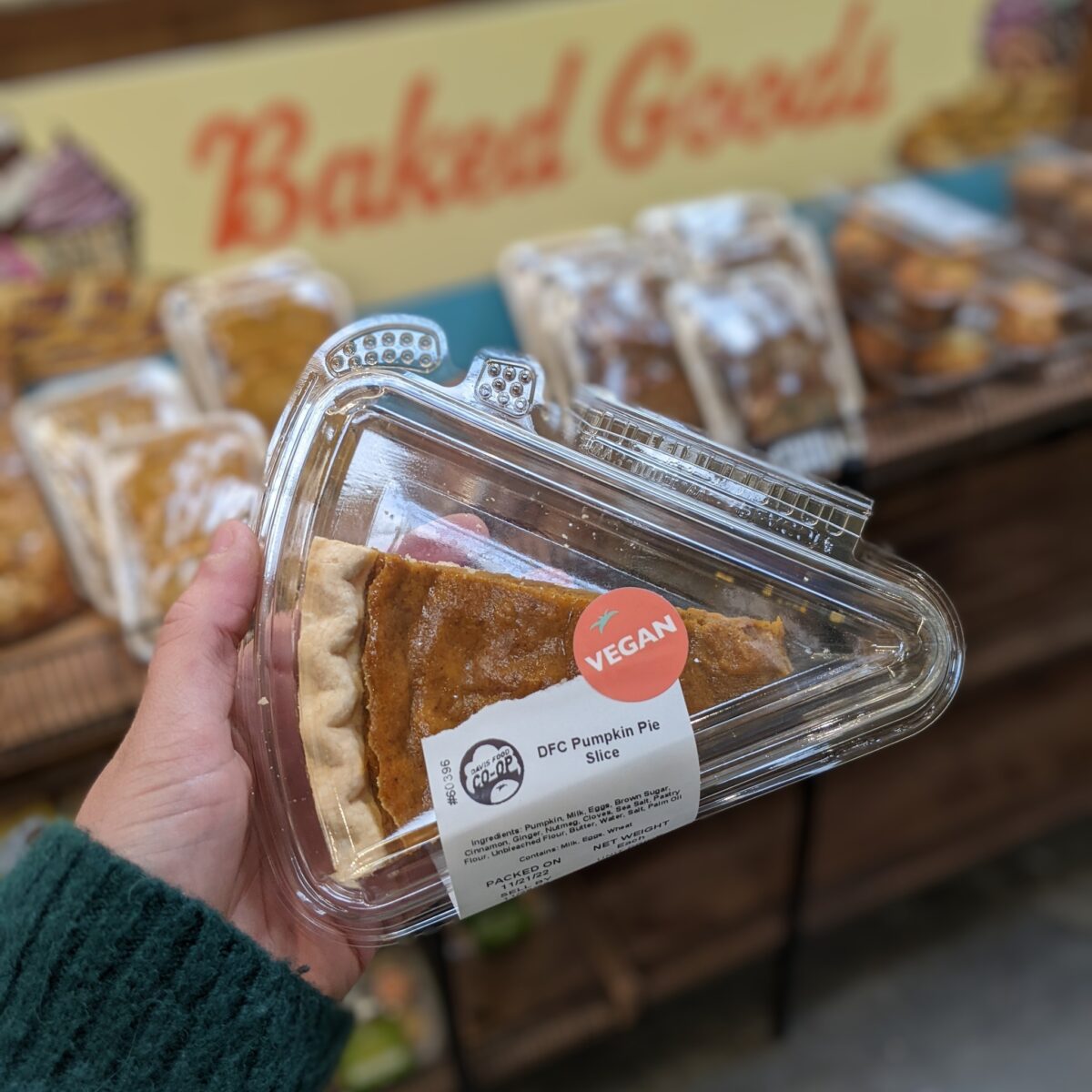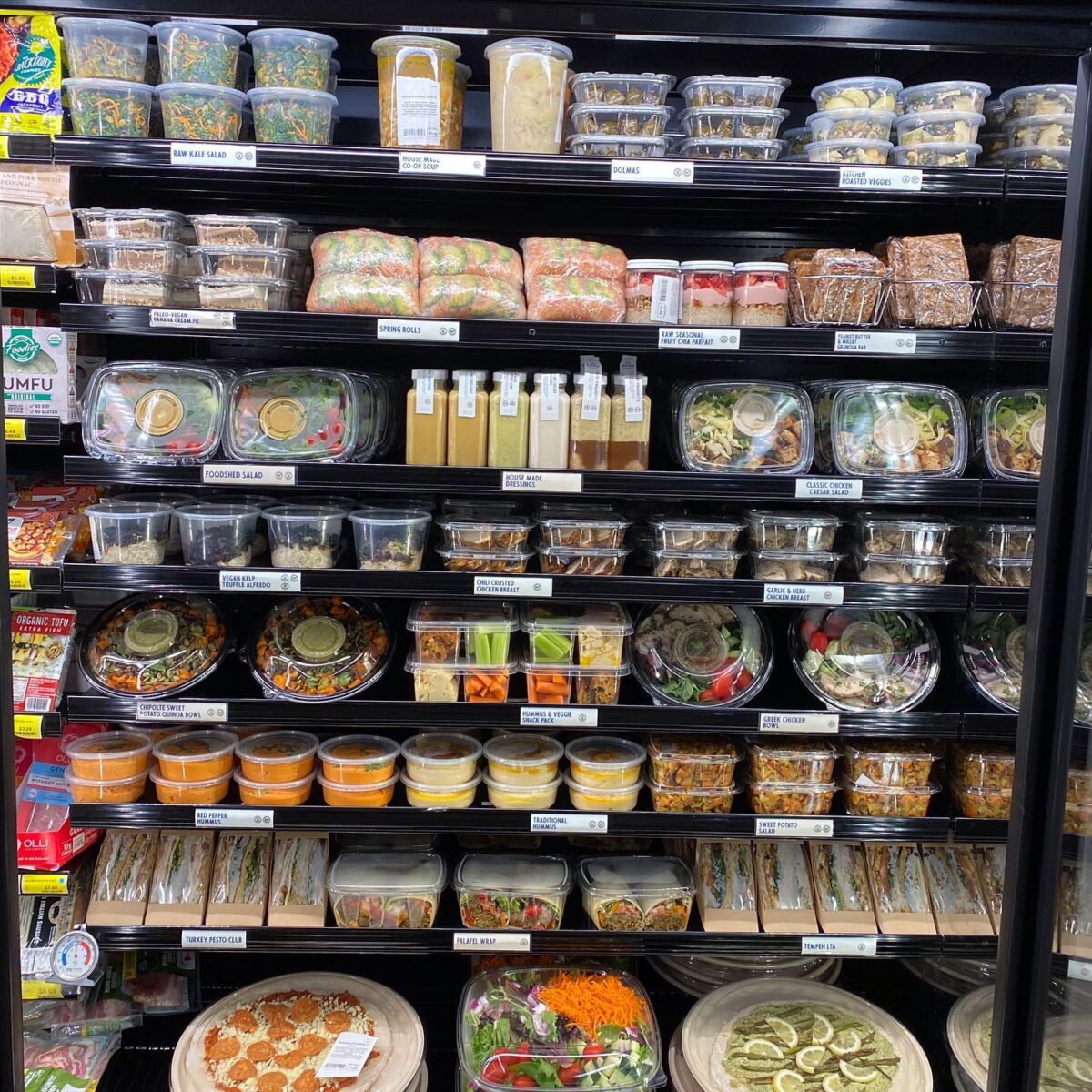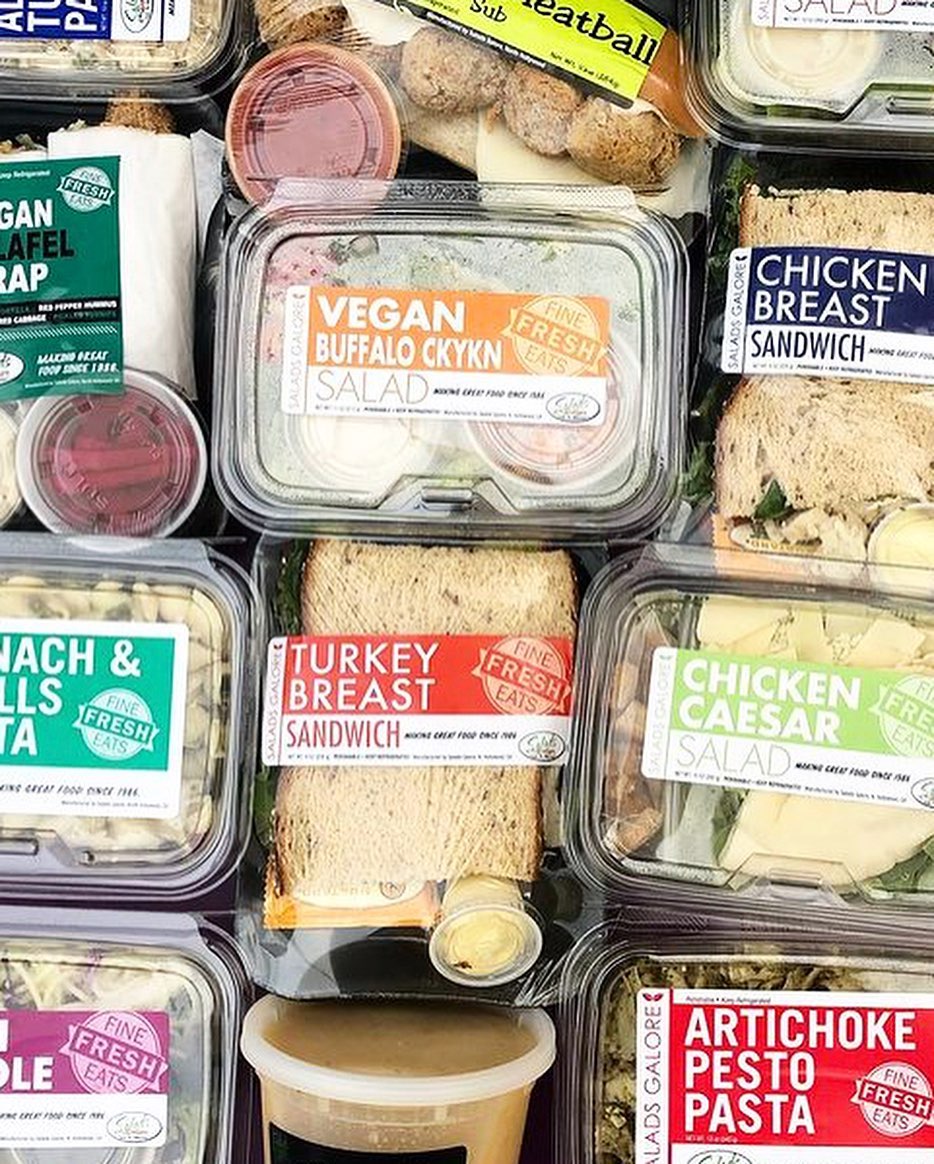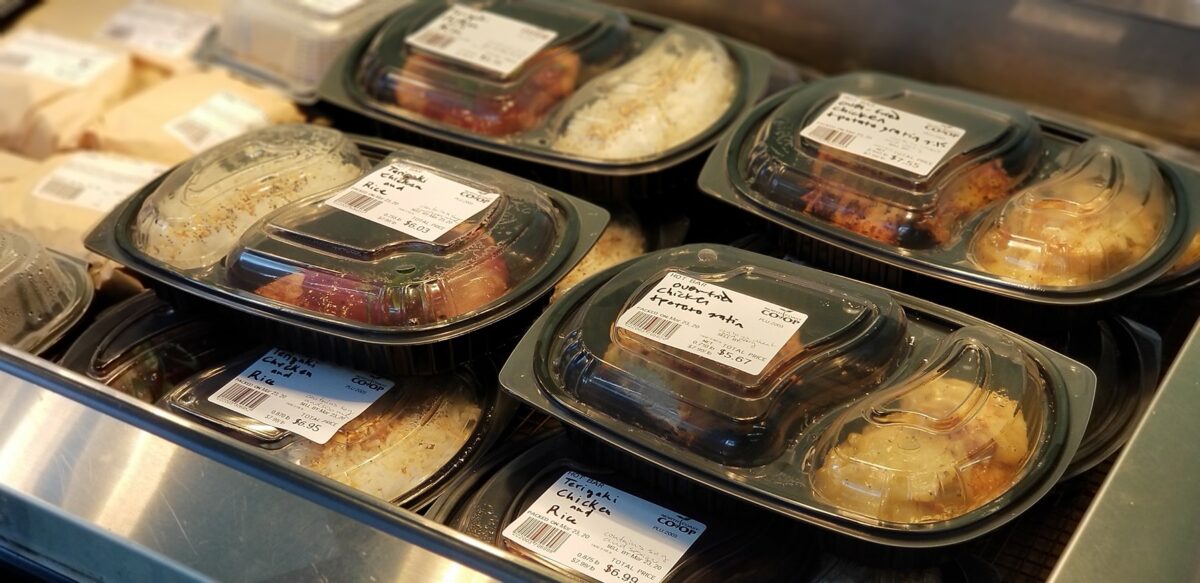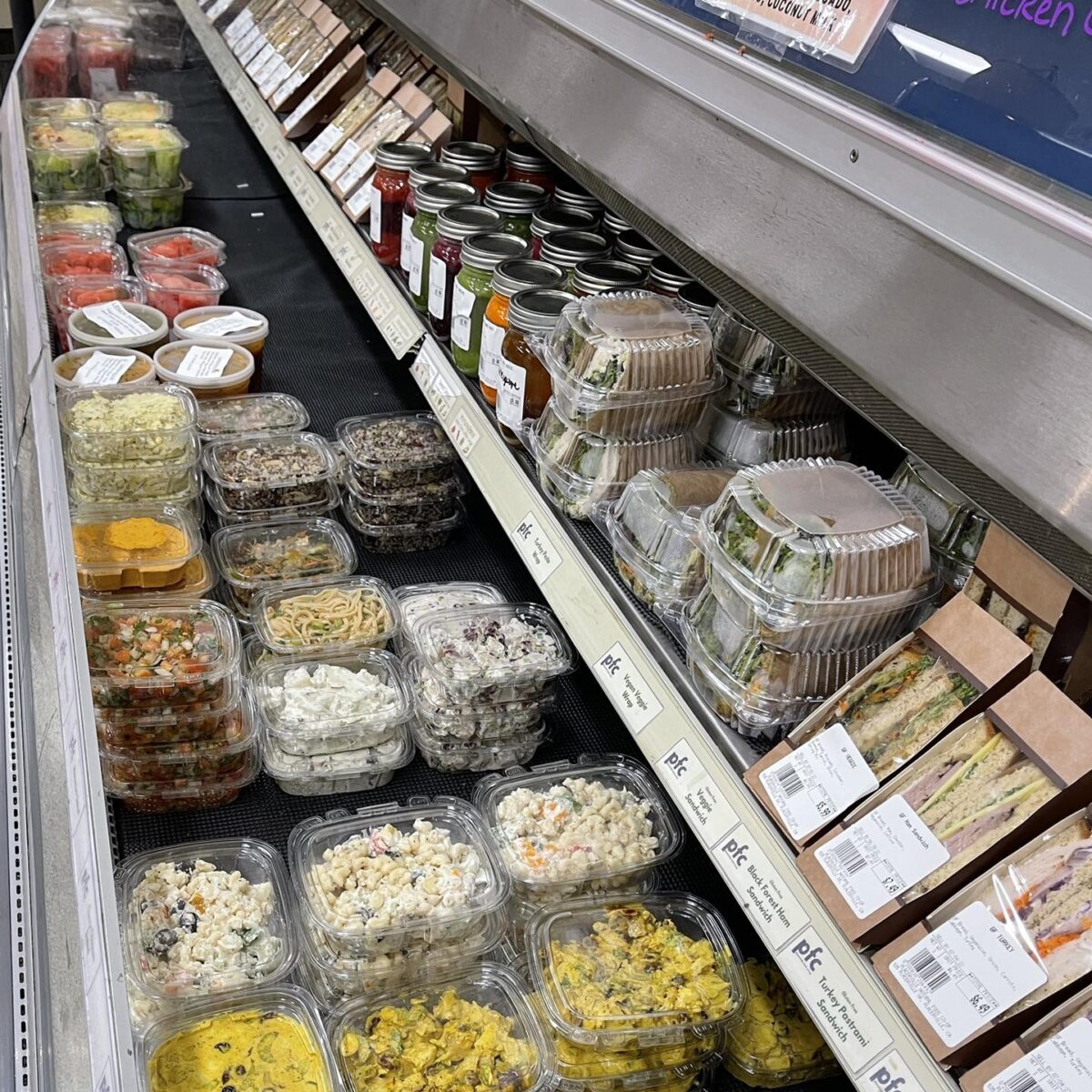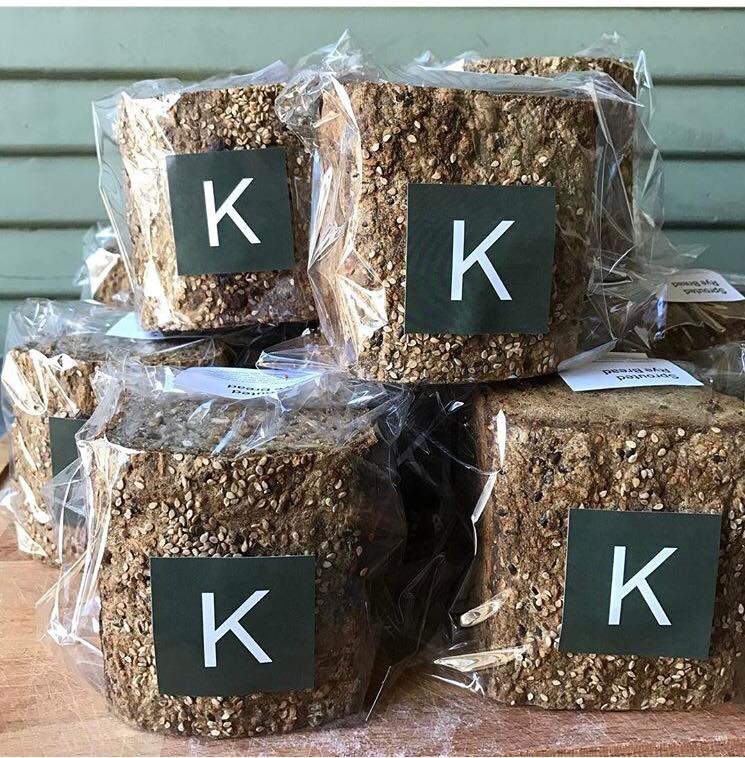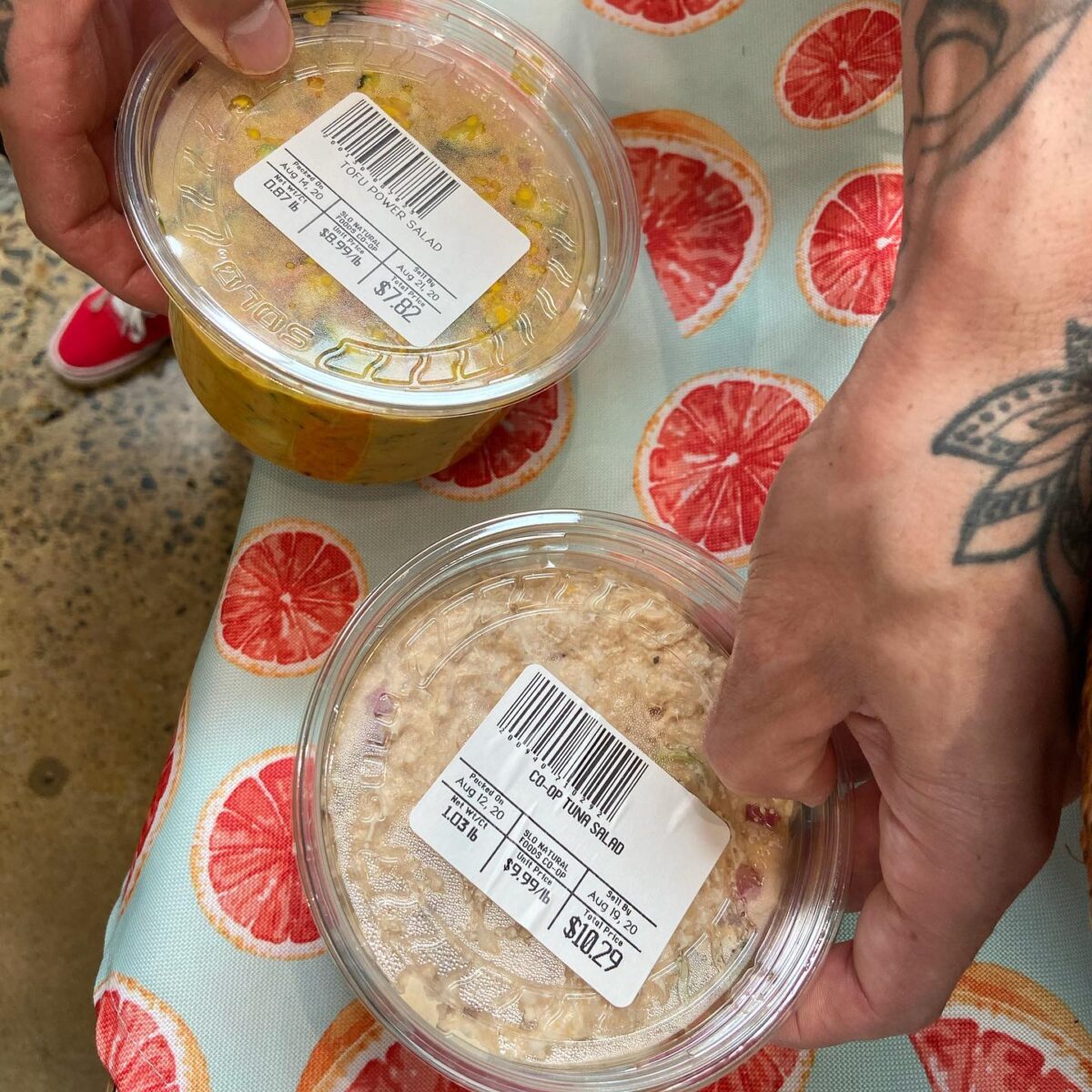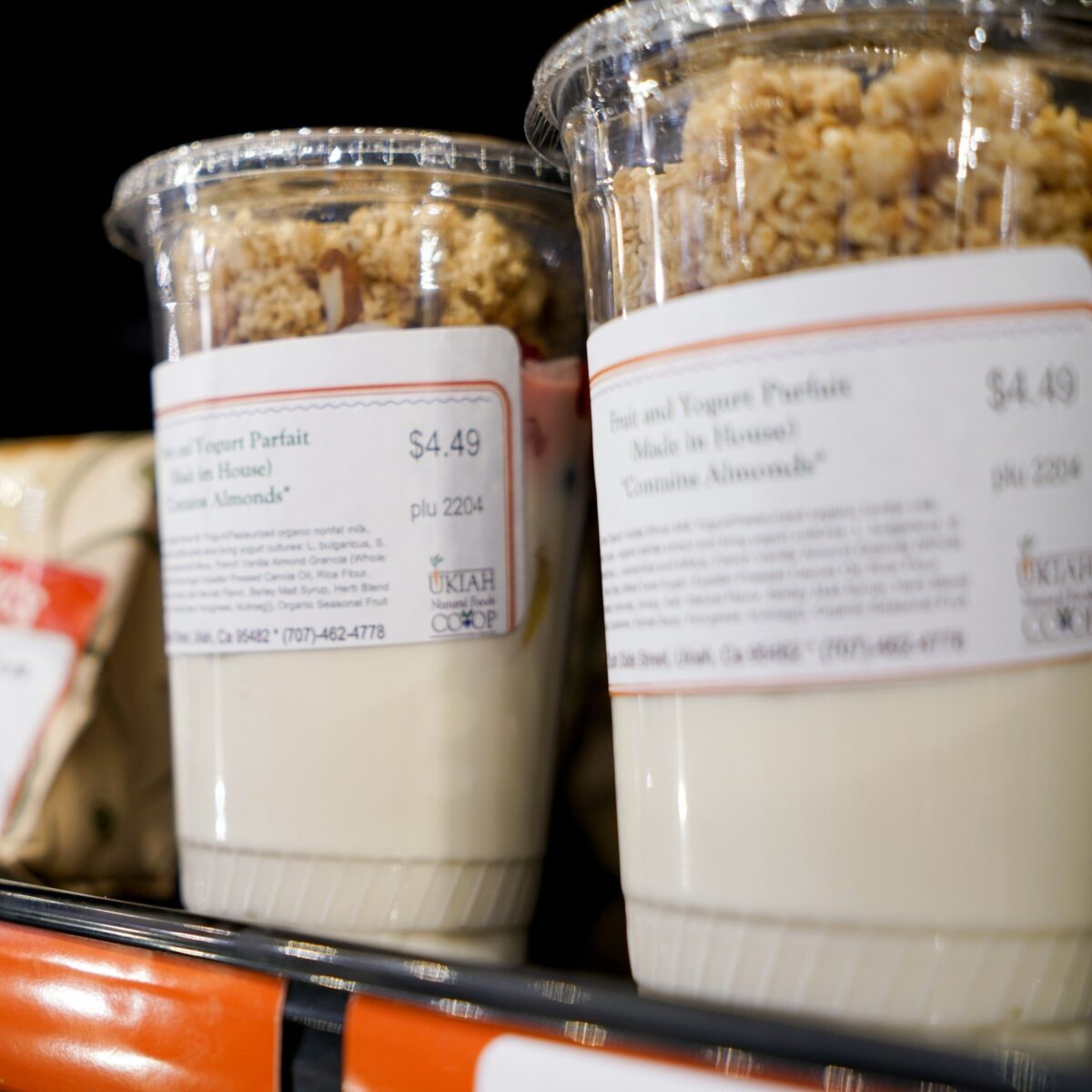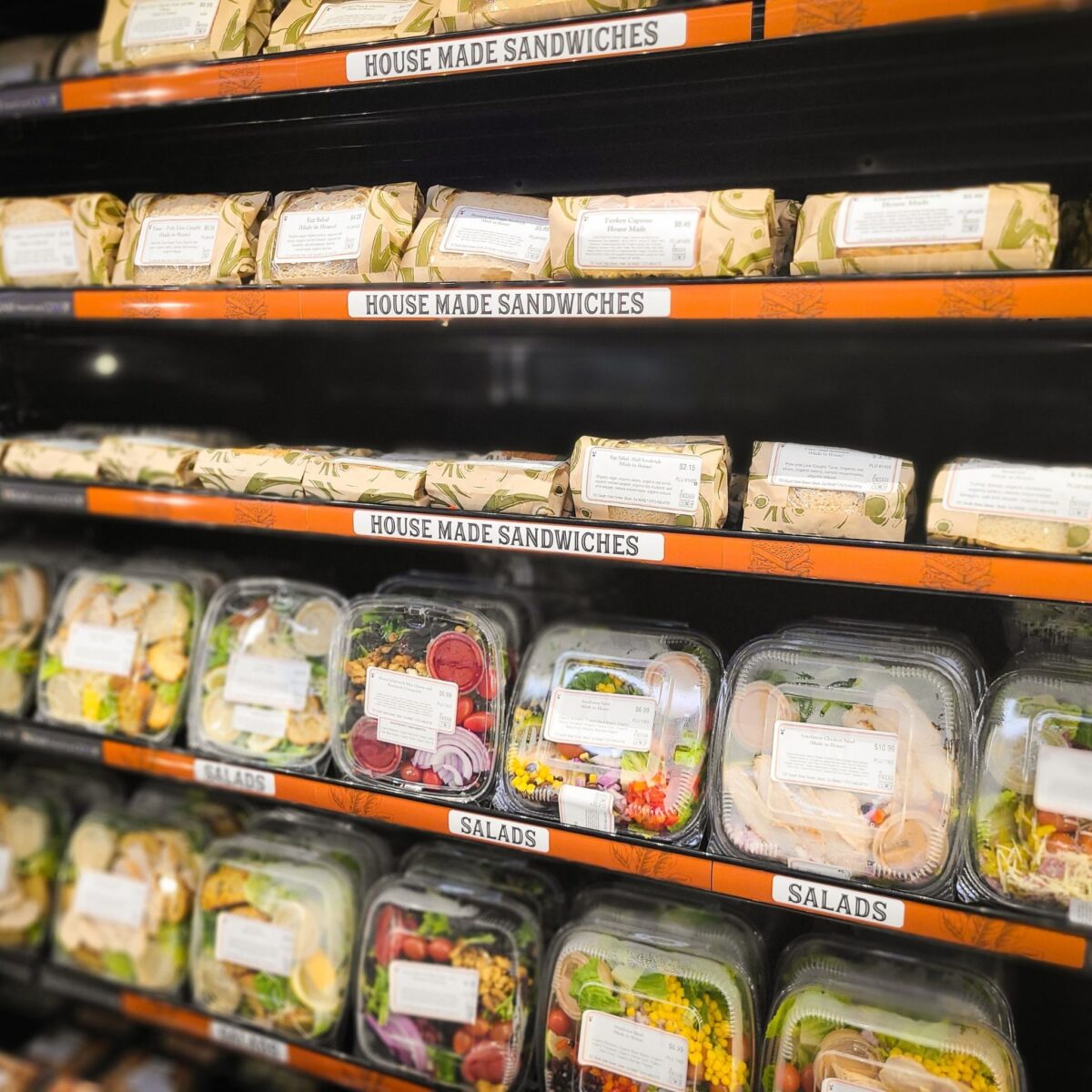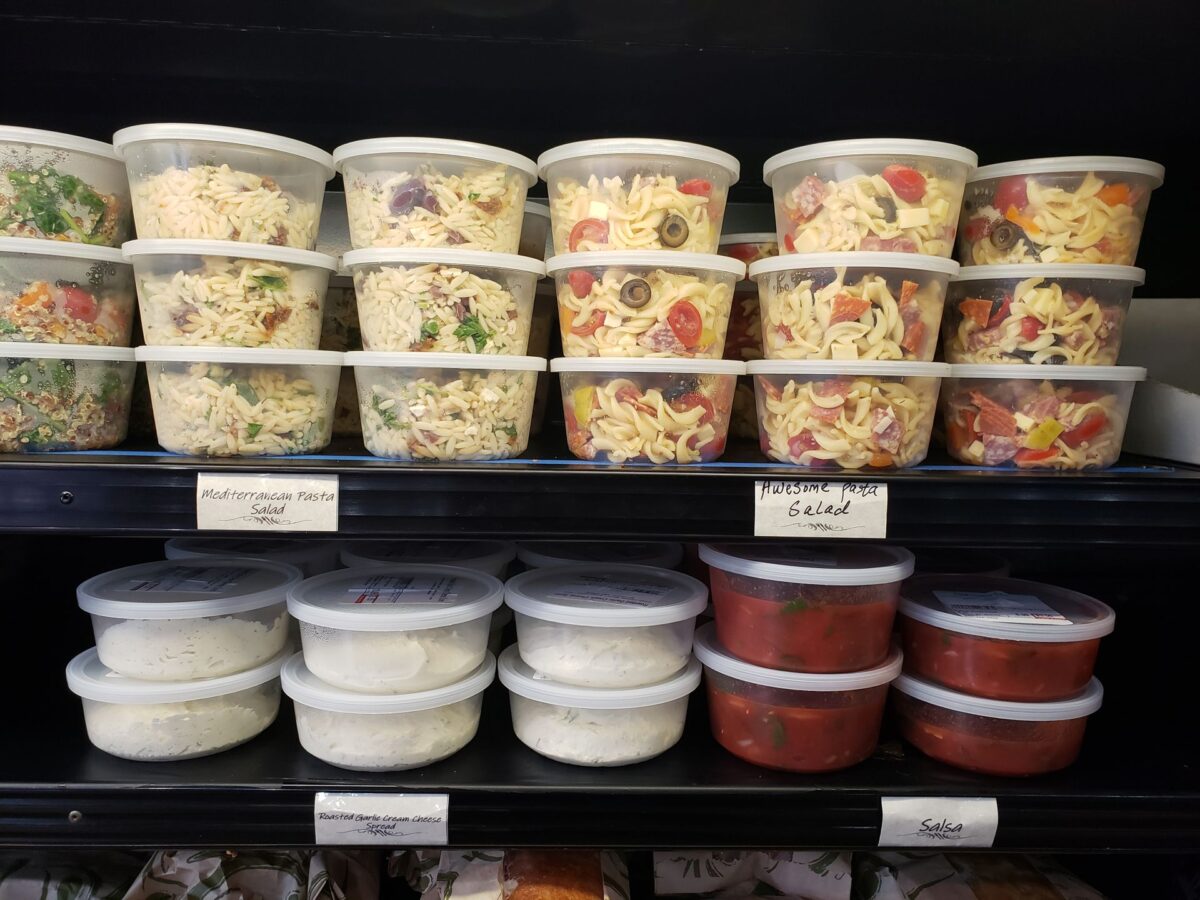Probably the greatest concern our customers have about the co-op is our plastic packaging. While
we do have some excellent non-plastic options – including the new sandwich brown bags we are
using, – the majority of our deli items are currently packaged in plastic.
We share our customers’ concern and know we have work to do to make our deli packaging more
sustainable. For the past few years during the pandemic, we had no choice but to package every
single item that came out of the kitchen. This was due to regulations related to covid exposure.
We’ve seen progress.
In the last 6 months we have moved to opening back up our baked goods case to unpackaged items.
We have also recently changed the way we package grab-n-go sandwiches from plastic wrap to
recyclable paper bags. Plastic wrap was used on sandwiches for almost 18 years when the previous
owners ran the deli. While these are small steps, we do want to acknowledge that we still have work
to do. Unfortunately, moving away from plastic packaging is not fast and simple.
What do other co-ops do?
Since co-ops naturally work together in accordance with the seven cooperative principles, I
researched the following co-ops to learn more about their deli operations:
·BriarPatch Co-op, Grass Valley, CA
·Placerville Co-op, Placerville, CA
·Chico Natural Foods, Chico, CA
·Isla Vista Co-op, Goleta, CA
·Rainbow Grocery (worker owned co-op), San Francisco, CA
·Ocean Beach People’s Co-op, Ocean Beach, CA
·Great Basin Co-op, Reno, NV
·North Coast Co-op, Eureka, CA
·San Luis Obispo Co-op, San Luis Obispo, CA
·Ukiah Natural Foods, Ukiah, CA
To my surprise, every co-op on this list uses the exact type of plastic containers in their deli that we
do. Each co-op also acknowledges that there is no easy fix to plastic use. Deli operations require a
non-absorbent container that is graded as food safe. The container should be clear, to allow for
customers to view its contents. Since our neighboring co-ops follow the same requirements, I feel
that we are following what industry standards call for in our kitchens. Below are photos from each
co-op I researched. These photos are current and show that delis around the state are in the same
situation.
We do want to report that all our plastic containers in the deli and bulk section is postconsumer
recycled (PCR) and considered a huge improvement over virgin petroleum based plastic.
Also, all containers are recyclable in accordance with the recycle “number” on the bottom of the
container. Just be sure to empty out the food first!
Reuse!
We always want to encourage customers to reuse their deli containers. Some ideas to reuse your
containers can include:
·Organizing your shed
·Painting
·Crafts
·Leftovers
·And so many more!
What about brown boxes?
Customers want to see the products they are buying. If a salad is not visible, it’s unlikely that
customer will trust what’s in the box and buy it. If they attempt to open the box, they have now
contaminated the food inside.
Brown boxes aren’t designed to hold food for long periods of time. Boxes will get soggy within 24
hours of the food being inside. This isn’t an appropriate practice and allows for more waste of food.
Why not glass?
I’ve been asked why we can’t move to glass containers. The cost of glass jars has increased
significantly in the last few years. This would but the increased costs of glass directly onto the
consumer’s lap. We would have to raise prices drastically to allow for this option. This as been
attempted at another close co-op, Great Basin Food Co-op in Reno, NV. Customers pushed for glass,
and then were upset at the cost of it and the food went to waste.
Another issue with glass is our challenging supply chain. We already have issues ordering products
consistently. Some weeks we try to order cases of jars just to sell in the store and they are out of
stock. To rely on this source would make it difficult to maintain operations.
Other possible solutions
So, how are we addressing our plastic use? We are focusing on reasonable solutions.
One potential solution could be to focus our attention on encouraging the reuse of deli containers and promoting
recycling options in our community. All deli containers that we use, as long as the food is gone, is
recyclable in our community.
Another solution could be to prioritize the expansion of our operations to allow a salad bar/hot bar. This
would allow the customer to choose the food of their choice, while using a more recyclable option, a
takeout box.
We will take all options into consideration as we move forward with our goal of more sustainability in
our operations.
